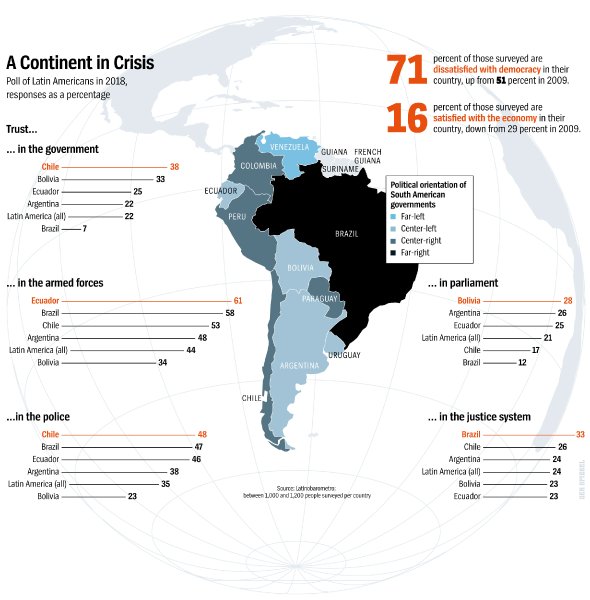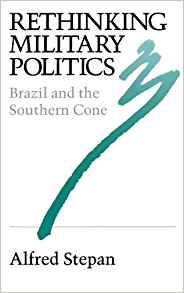
Credit: Der Spiegel
In Ecuador in 2000, Venezuela in 2002, Honduras in 2009, and now in Bolivia, opposition groups applauded when the army stepped in to remove elected governments they viewed as inept, corrupt or a threat to democratic institutions, note political scientists Steven Levitsky and
 Military intervention, they declared, was a means of defending democracy. Such views are misguided. The political scientist Alfred Stepan, author of Rethinking Military Politics and an expert on Latin American militaries, wrote during the 1980s that the key to preserving the region’s new democracies lay in ensuring that no civilian group knocked on the barracks door, they write for the New York Times:
Military intervention, they declared, was a means of defending democracy. Such views are misguided. The political scientist Alfred Stepan, author of Rethinking Military Politics and an expert on Latin American militaries, wrote during the 1980s that the key to preserving the region’s new democracies lay in ensuring that no civilian group knocked on the barracks door, they write for the New York Times:
Establishing a civilian rule is a long and difficult process. Each time military officials step in to resolve a crisis, no matter how benign or even democratic their motives may appear to be, the process of institutionalizing civilian control is undermined. Only recently has Latin America began to break out of this vicious cycle. After 1980, the number of coups declined significantly. At least partly as a result, the last three decades have been the most democratic in Latin American history. The renewed willingness to accept and even seek out military intervention is deeply troubling.
Steven Levitsky, a professor of Latin American studies and of government at Harvard, is the co-author, with Daniel Ziblatt, of “How Democracies Die” and a contributor to the NED’s journal of Democracy. María Victoria Murillo is a professor of political science and the director of the Institute for Latin American Studies at Columbia.







